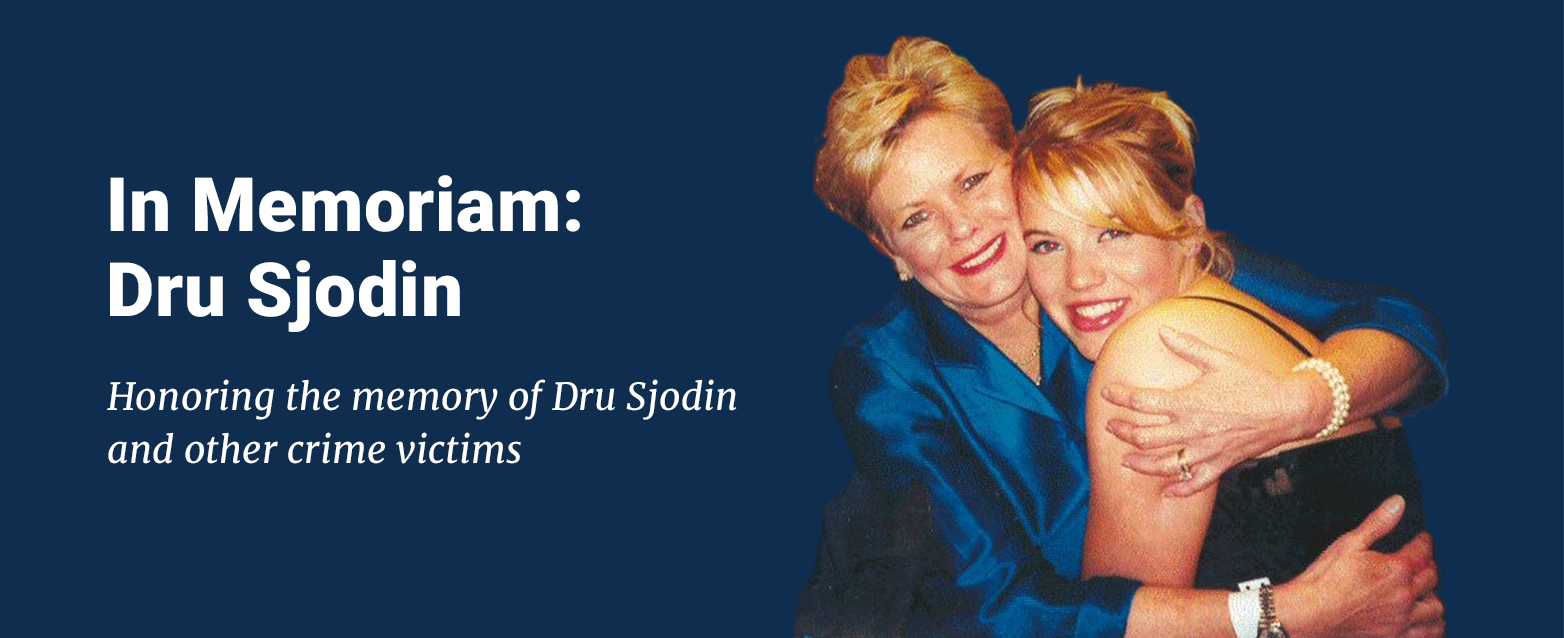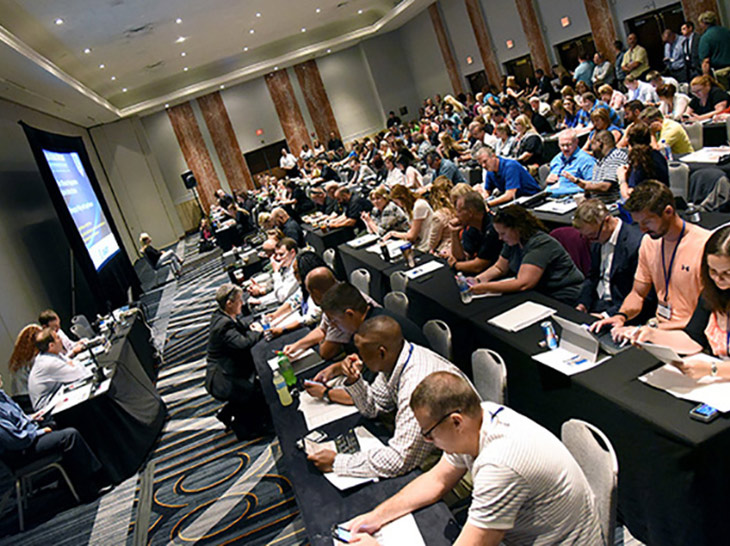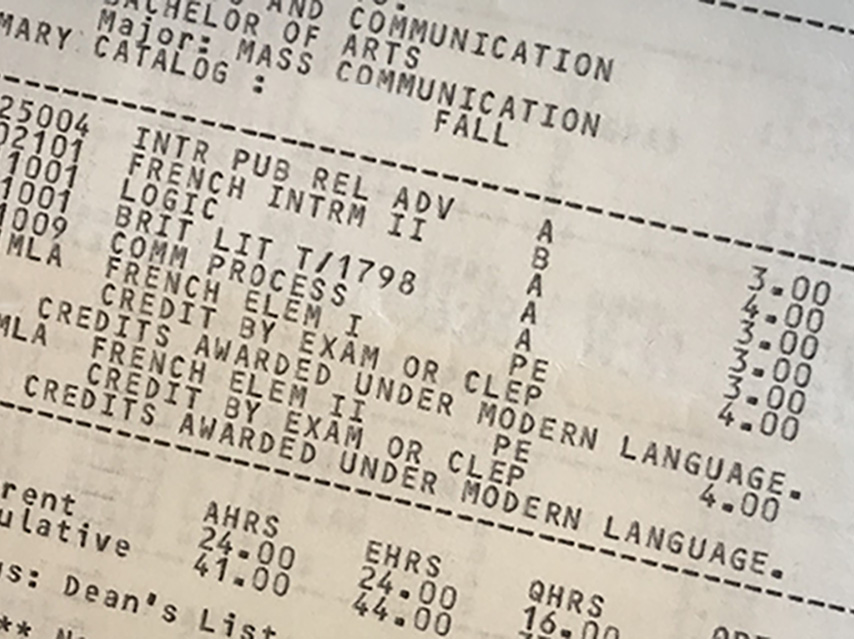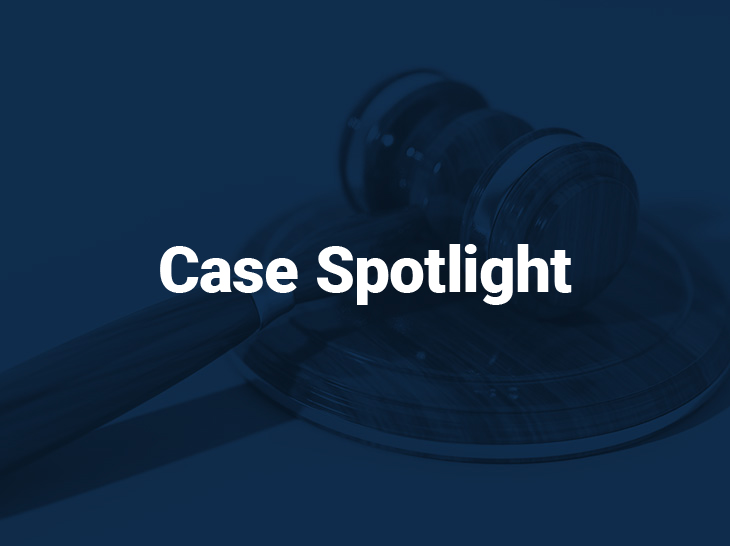In Memoriam: Dru Sjodin
Dru Sjodin was a 22-year-old student at University of North Dakota in November 2003. She had just changed her major to photojournalism. She had recently been on the cover of her university magazine for a feature about the Clothesline Project, which honors victims and survivors of sexual assault by decorating colored T-shirts and hanging them on a clothesline to raise awareness about the issue.
On November 22, 2003, Dru was abducted.
Dru was taken from a shopping mall parking lot as she walked to her car after she finished her afternoon shift. Abducted from Grand Forks, North Dakota, her body was found four months later in Crookston, Minnesota, about 25 miles away. A 50-year-old registered level 3 (most serious) sex offender, Alfonso Rodriguez Jr., was arrested and prosecuted federally because he crossed state lines with Dru while committing his crimes. He was convicted on kidnapping, rape and murder charges and sentenced to death. In May 2003, Rodriguez had been released from prison after serving 23 years for stabbing and attempting to kidnap a woman in Minnesota and had previously pleaded guilty to raping another woman.
Dru's abduction, and subsequent murder, highlighted gaps in the sex offender laws at the time: No comprehensive sex offender registry system existed that included information from each individual state and territory. Someone living close to a state border had to search multiple state registries to identify sex offenders who lived nearby. Further, Native American tribes and sex offenders living on tribal lands were not included on any registry.
"It was shocking," Dru's mother, Linda Walker, said. "She was taken at 5 in the afternoon, walking across the shopping mall parking lot, doing what every 22-year-old woman does. How the system was failing our victims propelled me to look at the laws. If Dru was alive, and it was me that was taken, she would have done the same."
After Dru's death, Walker said it came to her attention that a website was going to be created to link state registry sites.
"I was very passionate about it," she said. "Dru was living in North Dakota when she was taken, and a level 3 sex offender was living just across the state line. I felt the need for this system, where we could at least educate ourselves about who is living amongst us, and have one place that you could query that information."
Walker said that she became very passionate about the website and pursued it with politicians in North Dakota and "anyone who would listen to me." To raise awareness, she said she sent postcards to every politician in D.C.
In 2006, President George W. Bush signed the Adam Walsh Child Protection and Safety Act, which directed the Attorney General to establish the Dru Sjodin National Sex Offender Public Website in Dru's memory. NSOPW.gov allows users to perform a national search through a single query across the 50 states, federally recognized Indian tribes, U.S. territories and Washington, D.C., creating a seamless web across the country.
After the AWA was enacted, Walker worked for about a decade with the nonprofit RadKIDS, which teaches children how to protect themselves from violence and harm, to include sexual assault prevention education.
Her work with RadKIDS to empower children is directly related to how Walker sees Dru's legacy: shining a light on violence against women, children and young adults and empowering them to protect themselves.
"Just before she was taken, she was going to take an IMPACT [self-defense] course, to learn how to protect herself," Walker said. "It's something she would truly believe to this day: that women should be able to empower themselves to ward off people such as the man who took Dru."
For Walker, the hardest adjustment has been living her life without her daughter: Dru having held her brother's infant - her first nephew - but not having the chance to meet the rest of her seven nieces and nephews, seeing her daughter's friends getting married and starting families and imagining the life that Dru would be living today.
What brings Walker comfort is knowing that her daughter didn't die in vain - and that she will be remembered for the kind, caring and loving person that she was. "She probably would have reached out to the very man who took her and would have helped him if she had the chance," Walker said. "The night she was taken, she was supposed to chaperone a dance for underprivileged teens, between her jobs. I'm proud of the young lady she was becoming."
Walker also remembers her daughter's kindness, sense of humor, love of travel and artistic talents, including painting, drawing, photography and pottery. One of her last pieces was a set of four hand-built teacups shaped like lily pads with flowers.
Every year, a scholarship fundraiser is held at a golf course where she worked while she was in high school: $5,000 is awarded to a senior graduate from the high school she attended in Pequot Lakes, Minnesota, her hometown. Along with this scholarship, two others are given in her memory: one to Gamma Phi Beta for a sorority sister who is attending UND and another in an endowment in her name that funds a full, four-year tuition for one student annually to attend UND.
Today, the Dru Sjodin National Sex Offender Public Website links all 50 states, 155 tribes, five U.S. territories and the District of Columbia. Users conduct over 4 million searches on NSOPW.gov and the corresponding mobile app each month.
Despite the positive aspects of Dru's legacy, Walker sees that challenges still exist. "Realizing that we haven't come very far in protecting victims of sexual assault, even in my home state of Minnesota," has been difficult, she said. "In most cases, victims don't have a voice. As a nation, we're really failing those victims as well. It's a constant reminder, when I hear of another tragic case, that there are cases we'll never hear about, victims who go unnoticed. It's a constant drip in my mind. That's the frustrating and sad part, understanding that, for so many people who haven't lost a child, it's easy for society to walk away, when we can all come together and really do so much more for victims, and come together and stop it."
Attorneys on behalf of Dru's killer have appealed the conviction and the death sentence, asserting he is not mentally competent and cannot be executed. In December 2018, a federal judge ruled two new expert witnesses can testify on Rodriguez's behalf, as part of the appeal. The hearing concluded February 7, 2019.
From the Director
By Laura L. Rogers
The start of a new year always reminds me of a blank canvas - an opportunity to start fresh, a chance to reset and refocus goals and set priorities - both personally and professionally. Here at the SMART Office, the coming of the new year has offered us the perfect opportunity to focus our mission and goals, set priorities, define where the new year will take us and focus on the work we will accomplish.
The Adam Walsh Act was signed into law on July 27, 2006. The Act created a new opportunity for law enforcement to protect citizens by establishing a more detailed database of information on convicted sex offenders that law enforcement could search to determine potential suspects in ongoing sex offense cases. The Act directed the Attorney General to establish a single website that allowed anyone to search public sex offender registries from all 50 states, five principal U.S. territories, the District of Columbia and, for the first time, Native American tribes - the most comprehensive registry search of convicted sex offenders available to the public - which would enable all users to make better informed decisions about how to protect themselves, their children, family members and friends. The Act provided the ability for law enforcement to share information between jurisdictions so sex offenders could no longer simply move away from their past criminal acts. Today, because of the Act, the public is much better informed and has the opportunity to set parameters on their relationships with registered offenders. At the SMART Office, we are committed to increasing the information available to parents, individuals and children alike, to help each person be safe and make smarter decisions. We will continue to develop tools that provide for increased ease of information sharing and support greater public safety.
When the Act was passed in 2006, Congress mandated that all juveniles, 14 or older and adjudicated delinquent of a forcible sex crime, were required to register as sex offenders. Juveniles prosecuted as adults and convicted of forcible sex crimes were treated in the same fashion as their adult counterparts, and were required to register for life. In 2008, 2011 and 2016, modifications to the juvenile registration requirements were made, and the Supplemental Guidelines published in 2011 allow jurisdictions to decide whether to publish on a public registry the names of adjudicated juveniles 14 and older, convicted of a forcible sex crime. However, these juveniles are required to be part of the law enforcement-only database. This database provides law enforcement with a vital investigatory tool that is necessary and relied upon when a crime is committed and law enforcement is attempting to identify a suspect in a specific area. Having quick access to a classifiable group of potential suspects during an ongoing investigation can yield significant and beneficial results. Denying law enforcement officials this investigatory tool hampers their ability to quickly and thoroughly consider potential suspects and adequately investigate serious criminal conduct. The SMART Office is committed to working with jurisdictions to assist law enforcement in providing the tools needed to protect victims of sexual assault.
Since the Act was passed in 2006, Supplemental Guidelines were published in 2011 requiring sex offenders to report international travel 21 days in advance of such travel and submit information concerning the travel to the appropriate federal agencies and databases. Currently, more than half of U.S. states and territories and more than 130 tribes have implemented the international travel requirements. This process allows the U.S. to notify countries that sex offenders travel to, so they have advance notification of the sex offender???s travel plans. The SMART Office will continue to work with jurisdictions to increase implementation of the international travel notification requirement, as we are committed to protecting potential victims, wherever they may live.
In 2019, the SMART Office plans to host the National Symposium on Sex Offender Management and Accountability. This symposium is an excellent opportunity for stakeholders to obtain information and gain tools vital in the fight against sexual assault and child sexual abuse, as well as facilitate networking on the national level between registry and enforcement officials, whose work intersects as sex offenders move (and abscond) between jurisdictions. Learning sessions may include identification and monitoring of sex offenders, with a focus on effectively sharing information both within and outside of the communities and jurisdictions; specialized sex offender populations including elderly and intellectually impaired; the psychopathy of sex offenders; how sex offenders- movements and behaviors are affected by different jurisdictions- criminal and registration laws and regulations; tracking absconders; technology-facilitated crimes against children; and International Megan's Law travel and child sex tourism. Key topics planned include the prevention of and response to sexual offending, including the protection of vulnerable populations, such as children, young athletes and those with intellectual and physical disabilities, and effectively sustaining a sex offender registration and notification program.
2019 will mark 12 years of the SMART Office being in operation. Much good work has been accomplished, but there is still more to do. We work every day thinking of the innocent lives that have been lost or forever devastated by sexual assault and abuse. We work every day to continue to build a comprehensive web of sex offender notification and registration. We work every day to assist jurisdictions with their implementation efforts to assure comprehensive minimum standards of sex offender registration nationwide. At SMART, we will continue to work with jurisdictions to assist in achieving and maintaining substantial implementation. Only by national participation can we achieve the widespread benefits of a comprehensive sex offender registration system. I look forward to our continued progress in 2019.
Features
SMART to Host 2019 Symposium in Chicago
The SMART Office will hold its 2019 National Symposium July 17-18 in Chicago. This year, the symposium will focus on law enforcement applications of the Sex Offender Registration and Notification Act, registration and notification issues and prosecution of sexual offense crimes.
"The National Symposium is an excellent opportunity to increase your knowledge and understanding of sex offender investigation, prosecution, registration and community notification, as well as ways to further SORNA implementation in your jurisdiction," said Laura L. Rogers, Director of the SMART Office. "Registering and tracking sex offenders is an essential tool in jurisdictions- efforts to help their citizens stay safe. As more jurisdictions move closer to implementation, the more we can weave a seamless web of registration and notification across the country."
The symposium will feature several plenary sessions, including one on the psychopathy of sex offenders and one focused on using analytical data to assist with sex offender compliance featuring the National Center for Missing and Exploited Children.
In addition, sessions will cover information sharing, technology solutions, resources for registry officials (safety, training, retention), case law developments, international travel requirements, implementing SORNA in Indian Country, different approaches to implementing the SORNA standards, and myths and misconceptions related to SORNA.
The symposium is open to the public, though attendees must register ahead of time. Jurisdictions that have Adam Walsh Act Grant Program funds are encouraged to use those funds to attend the symposium. The SMART Office anticipates 500 participants.
The SMART Office National Symposium was last held in 2016 in Kansas City, on the 10th anniversary of the Adam Walsh Child Protection and Safety Act.
Registration and hotel information will be announced in March. For more information, visit smart.gov or check our Facebook page at @DOJSMART.
SMART Expands AWA Grant Eligibility
Ask A Grant Manager
Q. The 2019 Adam Walsh Act Program solicitation includes a purpose area for counties in states that have substantially implemented the Sex Offender Registration and Notification Act. What are some examples of activities allowed for this purpose area?
A. New in the SMART FY 2019 Support for Adam Walsh Act Implementation Grant Program solicitation is a purpose area/funding opportunity specifically for counties in states the SMART Office has determined to have substantially implemented SORNA.
Under this AWA purpose area, SMART expects counties to propose to fund staffing resources (sex offender registry staff, overtime for absconder investigation and compliance checks), equipment, supplies, travel for training or tactical operations, community notification efforts and prevention programs.
The following types of activities are allowable under AWA/SORNA funding for this purpose area (not an inclusive list):
- Staffing resources to monitor and validate data provided by registered sex offenders, support record digitization and records management projects and manage grant requirements such as administration and financial reporting.
- Resources for tactical operations such as investigation and apprehension of absconders, address verification and compliance checks.
- Equipment such as finger/palm print scanners, kiosks, IT equipment (computers, tablets, scanners, printers) for county booking agencies.
- Supplies such as cellphones or tablets to support mobile access and updates to sex offender registries and materials to develop and print address verification forms.
- Safety gear for sex offender registry officials.
- Travel expenses related to tactical operations.
- Travel expenses related to training for SMART Office-sponsored events, statewide and multijurisdictional SORNA trainings and Department of Justice financial grants management training. Note: Applicants are required to include in the budget transportation and lodging for at least one person (maximum of three) to attend a SMART-sponsored conference.
- Community education and outreach efforts (i.e., public service announcements, advertisement wrappers, newspaper inserts) to publicize sex offender absconders with an active bench warrant for their arrest.
- Prevention programs related to sex offender registration, notification or management.
- Activities that foster communication and assistance to neighboring jurisdictions, including Indian tribes who require and request sex offender registration assistance.
- Efforts to develop or enhance information sharing between the county's sex offender registry and other county entities (such as jail facilities, motor vehicle departments) to improve the accuracy of information about registered sex offenders.
- Efforts to develop and implement registration location and officer safety protocols.
County applicants must include a letter of support from the state registering agency in the application package. This letter should confirm that the county's proposed grant activities do not duplicate or conflict with state-level AWA-funded activities. Applications that do not include a letter of support at the time of submission will not meet basic minimum requirements and will not be considered for funding.
For a complete list of application requirements, review the solicitation, the pre-application webinar and FAQs posted at the SMART Funding Opportunities page.
SMART Surveys Higher Ed on Sex Offender, Misconduct Policies
When it comes to how colleges and universities deal with allegations of sexual misconduct and sexual assault on campus, there are many variations. Some colleges and universities engage with local law enforcement to conduct investigations, while others take an in-house approach; many do a combination of both. There are a wide variety of processes used by colleges and universities to establish the culpability of those accused of sexual assault and misconduct. How colleges and universities ultimately respond to students found responsible for sexual assault and sexual misconduct depends on the behavior, the campus policy, the number of reports against that individual, federal guidelines and much more. How colleges and universities share information about students found responsible for sexual misconduct - with campus and community partners, including law enforcement, and with other institutions - also differs significantly from campus to campus.
One practice colleges and universities use to share information about students found responsible for sexual misconduct on campus is transcript notation. In the past few years, this practice has become more common across the country, but is applied in a variety of ways. Two states, New York and Virginia, require institutions to issue notations on academic transcripts of students found responsible for violations involving sexual violence; in New York, schools are required to notate transcripts for violations of the school's code of conduct concerning sexual violent offenses covered under the Clery Act; in Virginia, notation on a student's transcript is required if the offense involving sexual violence is a violation under the institution's code, rules or set of standards governing student conduct. In states where there is no legal mandate, some colleges and universities follow the American Association of Collegiate Registrars and Admissions Officers guidance that colleges and universities should "provide some form of notice to receiving institutions when serious behavioral misconduct occurs." The Association for Student Conduct Administration also provides guidance to its members on this issue and "recommends that all institutions place an appropriate notation on an academic transcript to indicate when a student is ineligible to re-enroll at that institution as a consequence of disciplinary action." Despite this guidance, there is a dearth of information about how these transcript notations are used and if they are effective.
Separately, there is no consistent practice for colleges and universities to be notified or learn about the presence of registered sex offenders (student, faculty or staff) on their campus. These students, faculty or staff have been convicted of a sex offense in criminal courts and are required to register as a sex offender based on the seriousness of their conviction. How the college or university is notified of a registered sex offender's presence on campus varies from jurisdiction to jurisdiction, with many of the decisions about information-sharing left to the local jurisdiction. Many colleges and universities have some form of cooperative agreement or memorandum of understanding with their local law enforcement agency for information-sharing purposes. In some cases, a college or university may learn about a registered sex offender on campus because of media coverage. But what the college or university does with this information - how it's shared with students, faculty and staff - varies significantly from one jurisdiction to another and among institutions.
The SMART Office is supporting college campus safety through campus-based sexual assault prevention initiatives. As part of these efforts, the SMART Office's Campus Information Sharing and Response project aims to simply gather and assess information about campuses' current transcript notation and registered sex offender information-sharing practices, how these practices are being implemented and the impact on all parties involved. The SMART Office plans to send a 15-minute electronic questionnaire to colleges and universities across the United States, via higher education associations, in February 2019.
This two-part survey will explore 1) current campus policies and practices regarding students found responsible for sexual misconduct and 2) information-sharing practices regarding registered sex offenders who attend classes, work or live on a campus. To date, there has been no national survey of how campuses are accessing or using sex offender registry information. The results will be anonymous, although a campus can share any existing policies and written practices for review. All identifying school information will be removed. No personal information regarding any student or event will be requested or collected, as only policies and procedures are being assessed. Further, as SMART is not collecting names or details of any alleged incidents of campus sexual assaults, such information will not be compiled in any way.
With this project, the SMART Office hopes to clarify the current policies and practices of colleges and universities regarding information sharing around registered sex offenders and transcript notation for sexual misconduct.
International Travel Notification Prosecution
Northern Ohio sex offender convicted for not disclosing move to China, teaching at elementary school
Prior to the 2016 International Megan's Law, it was sometimes difficult to prosecute sex offenders who did not provide advance notice before traveling or relocating out of the country - a loophole IML sought to close. In part because of those new provisions of IML, there has been another successful prosecution of an offender traveling internationally without giving advance notice, this time involving an Ohio offender who traveled to China to work as an English language teacher.
In 2004, Mark Timothy Schafer was indicted in Ohio on one count of rape, one count of attempted rape and five counts of gross sexual imposition against a victim under 13 years of age, all as part of an admitted "ongoing pattern of conduct in molesting young children." Later that year he pleaded guilty to two counts of gross sexual imposition and received a five-year suspended sentence on each charge with a condition of complying with community supervision. As a result of these convictions, Schafer was also required to register as a sex offender.
In 2006, Schafer violated his probation terms and a judge sentenced him to the full term of his 10-year sentence. By early 2017, he had been released from prison and had registered as a sex offender in Ohio. After his release, Schafer made arrangements to teach at a small private English-language elementary school in Shenyang, China. In September 2017, he obtained a Chinese visa and then left for China in November 2017 without notifying Ohio officials of his intent to live and work overseas. He arrived in Shenyang, signed an employment contract and remained there until early January 2018.
A coworker, a fellow U.S. citizen who had grown suspicious of Schafer's unusual behavior with children at the school, discovered his criminal history and contacted U.S. authorities. The school fired Schafer several weeks later and, upon his dismissal from the school, Schafer was deported, returned to the United States and was arrested for failing to provide advance notice to Ohio of his change of employment and residence. Schafer pleaded guilty of two counts of violating 18 U.S.C. - 2250 - interstate travel and failure to notify - and is serving a 21-month sentence.
U.S. Marshals Service Senior Inspector William Boldin, sex offender investigations coordinator for northern Ohio, told the SMART Office this is the second international case in northern Ohio in the last 18 months.
"These cases are important because, regardless of where these cases are in the world, it's important to protect children from these predators," Boldin said. "We know these offenders prey on children; we have an obligation to do everything we can to prevent that."
Boldin continued, "As we have more aggressive enforcement in the U.S., the predators expand their search area for victims by traveling outside the U.S. Working these cases helps us to prevent additional victims, regardless of where they are in the world."








